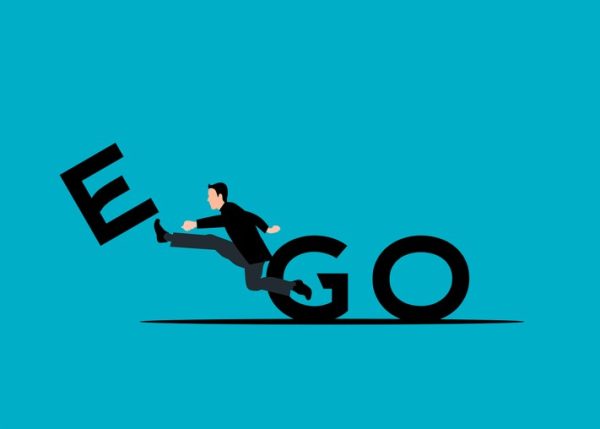
Ego Driven Attitude Can Interfere In Personal Growth
Recognizing signs of an ego-driven attitude is a critical step toward personal growth and self-awareness. In everyday language, ego often refers to one’s self-image, pride, or sense of importance. It can have a positive or negative connotation. A healthy ego is a balanced sense of self-confidence and self-worth. An inflated ego is an overemphasis on self-importance, often leading to arrogance or selfishness.
Ego is the lens through which you view yourself in relation to the world. It is neither inherently good nor bad—it depends on how you manage it. A healthy ego fosters confidence and self-respect, while an unchecked or inflated ego can lead to pride, insecurity, or conflict. In mindfulness practices, letting go of ego means detaching from the constant need to protect your image or prove your worth.
What are some of the common signs that might indicate an ego-driven attitude or inflated ego that is hindering oneself development or has negative impact? What is the reflection of these signs?
Signs of an ego driven attitude:
1. Difficulty admitting mistakes: You struggle to acknowledge when you are wrong or feel defensive when criticized. Reflection: Do you find it hard to apologize, even when you know you are at fault?
2. Constant need for validation: You seeks approval, praise, or recognition to feel good about yourself. Reflection: Do you feel uncomfortable when your efforts go unnoticed?
3. Superiority complex: You believe you are better, smarter, or more capable than others. Reflection: Do you often judge others or dismiss their contributions as inferior?
4. Inability to accept criticism: You take constructive feedback personally and feel offended or hurt. Reflection: Do you get defensive when someone offers advice or corrections?
5. Desire to always Be right: You prioritize winning arguments over understanding others’ perspectives. Reflection: Do you feel uneasy when someone else proves a point?
6. Reluctance to ask for help: You view asking for assistance as a sign of weakness. Reflection: Do you often think, “I can handle it myself”?
7. Over-focus on achievements: You derive your self-worth from your accomplishments or status. Reflection: Do you often compare yourself to others or feel the need to gain the lead over them?
8. Difficulty building genuine connections: You prioritize your own image over fostering authentic relationships. Reflection: Do you feel disconnected from others, even in social settings?
9. Envy or resentment: You feel jealous when others succeed, or you downplay their achievements. Reflection: Do you think, “They don’t deserve it as much as I do”?
10. Unwillingness to compromise: You insist on having things your way and resist collaboration. Reflection: Do you feel frustrated when others suggest alternatives?
How to identify ego in yourself?
Self-reflection questions: Take time to ask yourself honestly-
1. Do I feel threatened when others outperform me?
2. Do I often interrupt others to share my opinion?
3. Do I need to control conversations or situations?
4. Do I fear being seen as weak or vulnerable?
Feedback from others: Ask trusted friends, family, or colleagues to share their perception of your behavior. Be open to hearing their observations without judgment.
Monitor emotional triggers: Notice moments when you feel defensive, irritated, or superior. These emotions often stem from the ego.
If any of these signs resonate with you, it is a good indication to work on shifting your mindset. Overcoming an ego-driven attitude is not about suppressing confidence—it is about balancing self-assurance with humility and empathy.
Image credit: Image by Mohamed Hassan from Pixabay (Free to use under pixabay content license)
Author: HealthyLife | Posted on: January 10, 2025
« How To Prevent Injury During Yoga Practice? How Uttana Mandukasana Stretched Up Frog Pose Helps In Getting Rid Of Body Pain »






















Write a comment